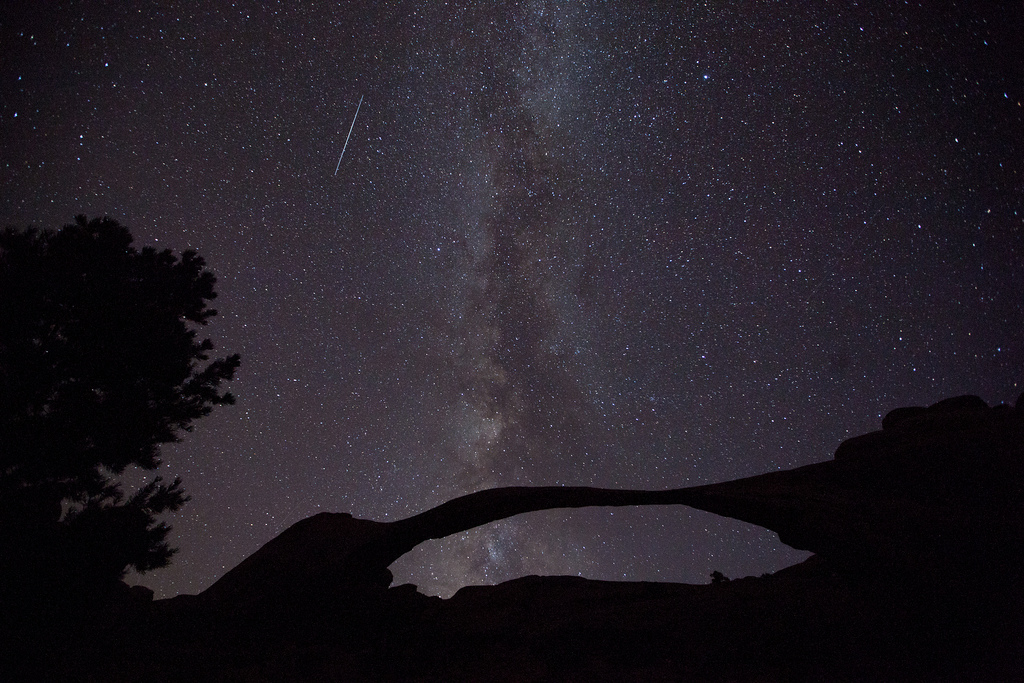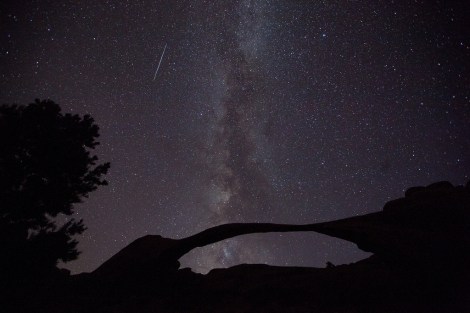Bright lights, big nature?
Urban studies have consistently shown that good street lighting can significantly reduce crime. But those lights and their inefficient plastic domes also stand to drastically reduce our awesome skyward views.
Enter the growing “dark skies” movement, spreading from Europe to Texas to Africa to try to preserve our ability to just see the dang stars at night.
Some months ago, Austin, Texas, set aside $15 million to upgrade half of the city’s streetlights to LED versions that won’t send light pollution skywards. Now the rest of Texas’ big skies may follow suit.
Star-gazing in Texas presents both opportunities and challenges, dark-skies advocates say — and not just for state parks. In West Texas, the dry desert air makes for bright stars. But fast-growing cities and towns, plus a general distaste for regulation, mean that light from street lamps and other outdoor bulbs diffuses into the night sky, rather than being controlled by downward-pointing fixtures.
A small but growing number of Texas cities are passing lighting ordinances aimed at protecting star-gazing. A law passed last year requires municipalities within 57 miles of the McDonald Observatory (which is north of Alpine) to approve ordinances to minimize the impact of lighting on the observatory.
But what about us regular, non-sciencey stargazers? The Arizona-based International Dark-Sky Association is dedicated to pushing other governments to follow suit. They have chapters across the country and world.
Since 2006, the group has designated 10 “dark sky” parks globally, as well as another four reserves. The idea is to single out areas that offer excellent stargazing and also work to keep night lighting minimal. One of the latest-certified areas, added in May, is the NamibRand Nature Reserve in Namibia, where the dry air and remote location make for clear skies and good nighttime viewing. The site is the first dark-sky reserve in Africa — or in any developing country.
This is all becoming easier as lighting companies become aware of their own pollution and work on solutions, such as motion-sensor street lamps. But of course, of course, “the biggest battle of all involves getting enough people to care” about a problem that is, unlike nearly all other environmental degradation, reversible.
At least we’ll always have West Texas.




